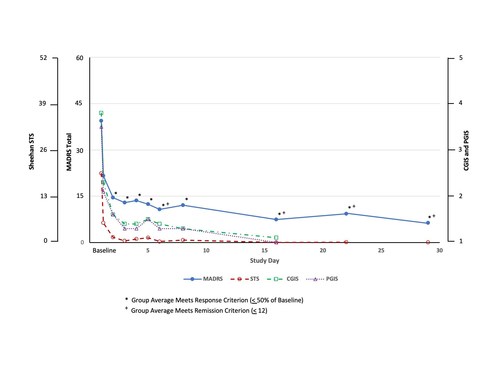Creso Pharma to enter Swiss medicinal cannabis market
Highlights:
- Non-binding LOI secured with Innuana AG Switzerland, a licensed cannabis grower to enter the Swiss medicinal cannabis market
- Innuana will grow medicinal cannabis based on Creso Pharma’s specifications – Creso Pharma to market to doctors and patients
- LOI has the potential to significantly broaden Creso Pharma’s product offering for the Swiss market, with sales to add to the Company’s growing revenue profile
- Execution of LOI follows recent Swiss law amendments providing a more favourable operating environment and highlight ongoing acceptance of medicinal cannabis
- Initial sales focus with oncologists and oncological clinics in Switzerland – Creso Pharma will benefit from established relationships with the medical community over several years
- Unlocks a large market opportunity for Creso Pharma –expected to be over 110,000 medicinal cannabis patients in 2022i in a market growing to $1.9Bn in value by 2028ii
- Creso Pharma to leverage established networks with doctors and clinics in the Swiss market to drive growth
- With the new laws, the commercial export of cannabis for medical purposes will also be permitted providing additional opportunities
- Expansion of Swiss operations highlights the Company’s broader global scale up
Creso Pharma Limited (ASX: CPH, OTC: COPHF FRA:1X8) (‘Creso Pharma’ or ‘the Company’) is pleased to advise that it secured a non-binding Letter of Intent (“LOI”) with a licenced cannabis grower Innuana AG, Switzerland (“Innuana”) to grow and market medicinal cannabis for the burgeoning
market in Switzerland.
Innuana is focused on the research, growing, processing and production of medicinal grade cannabis. The group has been involved in cannabis cultivation, breeding and research for several years. Innuana has an established reputation in Switzerland and in October 2021, received one of the initial public
orders to grow cannabis by the local government to cover the needs of the City of Zürich in 2022 and beyond.
Both Creso Pharma and Innuana have executed the LOI agreement following recent amendments to the Swiss Narcotics Act in March 2021, which facilitates the patient access for the use of medicinal cannabis in Switzerland.
Following the change of the regulations, the cultivation, processing, production and trade of medicinal cannabis will become subject to the authorisation and control system of the Swiss agency for therapeutic products, Swissmedic. Accordingly, treatment with medicinal cannabis will no longer require an exceptional authorization by FOPH (Federal Office of Public Health)iii.
The legislative shifts will enable Creso Pharma to expand its Swiss operations and enter into the Swiss medicinal cannabis market. Under the LOI, Innuana will grow and produce medicinal cannabis products to the Company’s specifications, which Creso Pharma will sell and distribute to patients.
The initial term of the agreement is one year (“Initial Term”) and will automatically renew after one year (“Renewal Term”), unless either party notifies the other of their decision to not renew the agreement within 30 days prior to the expiry of the Initial or Renewal Term. Initial Term and Renewal
Terms are subject to termination for cause upon notice by either party, or upon failure to meet the above referenced renewal conditions. Should the parties not enter into a formal commercial agreement on or before 30 December 2022, the LOI shall automatically terminate.
Creso Pharma will bring in its medical and pharmaceutical expertise for the growing specifications, and the marketing and use of the product. Creso will also leverage its established relationships with prescribers and clinics in Switzerland to drive prescription sales growth.
Initially, Creso Pharma will focus on the Swiss market, which provides access to a potential 110,000 Swiss patients in 2022i in a market expected to grow to CHF1.3Bn (A$1.9Bn) by 2028ii. Additional expansion efforts into other countries will follow in due course.
Creso Pharma’s Director of International Operations, Mr Jorge Wernli said: “Recent regulatory shifts in Switzerland have unlocked a significant opportunity for Creso Pharma and this collaboration with Innuana marks the first step in our expansion into the Swiss prescription market.
“Healthcare professionals will now be able to prescribe medicinal cannabis products to a large range of patients and importantly this agreement will allow Creso to grow cannabis to its own specifications, utilising pharmaceutical experience and product expertise.
“Initially, we will focus on Switzerland with the medium-term objective to export the products into countries with similar opportunities.”
-Ends-
Authority and Contact Details
This announcement has been authorised for release by the Board of Directors of Creso Pharma Limited.
For further information, please contact:
Investor Enquiries
Creso Pharma Limited
E: info@cresopharma.com
P: +61 (0) 497 571 532
Enquiries can be texted to +61 (0) 497 571 532
Released through:
Ben Jarvis, Six Degrees Investor Relations: Ph: +61 (0) 413 150 448
ABN: 89 609 406 911
Suite 5 CPC, 145 Stirling Highway, | Nedlands, WA, 6009 | Australia
Allmendstrasse 11 | 6310 Steinhausen | Schweiz
CresoPharma.com
(ASX: CPH)
About Creso Pharma
Creso Pharma Limited (ASX:CPH) brings the best of cannabis to better the lives of people and animals. It brings pharmaceutical expertise and methodological rigor to the cannabis world and strives for the
highest quality in its products. It develops cannabis and hemp derived therapeutic, nutraceutical, and life style products with wide patient and consumer reach for human and animal health.
Creso Pharma uses GMP (Good Manufacturing Practice) development and manufacturing standards for its products as a reference of quality excellence with initial product registrations in Switzerland. It has worldwide rights for a number of unique and proprietary innovative delivery technologies which
enhance the bioavailability and absorption of cannabinoids. To learn more please visit:
www.cresopharma.com
About Innuana
Innuana is a GMP grade, licensed cannabis grower based in Switzerland with indoors and outdoors
growing operations. It employs upwards of 20 people and is a subsidiary of Uana Holding AG. In
October 2021, Uana Holding received an order from the city of Zürich to produce cannabis to cover its
needs. Innuana differentiates itself through its extensive strengths and skillset, including
- Expertise in plant breeding, GMP and medical hemp know-how
- Existing business as a basis
- Own and rented fields including cultivation
- Controlled cultivation areas with all required regulatory approvals
- Technical expertise
- Stable core team with unique expertise
- Outstanding pioneering know-how in SGF 3 (medical cannabis)
- Leading market recognition
Creso Pharma offices:
Australia
Suite 5 CPC, 145 Stirling Hwy, Nedlands, WA, 6009
Switzerland
Allmendstrasse 11, 6310 Steinhausen, Schweiz
Canada
59 Payzant Driver, Windsor, Nova Scotia, B0N 2TO
Canada
50 Ivey Ln, Windsor, Nova Scotia, B0N 2TO
Forward Looking statements
This announcement contains forward-looking statements with respect to Creso and its respective operations, strategy, investments, financial performance and condition. These statements generally can be identified by use of forward-looking words such as “may”, “will”, “expect”, “estimate”,
“anticipate”, “intends”, “believe” or “continue” or the negative thereof or similar variations. The actual results and performance of Creso could differ materially from those expressed or implied by such statements. Such statements are qualified in their entirety by the inherent risks and uncertainties surrounding future expectations. Some important factors that could cause actual results to differ materially from expectations include, among other things, general economic and market factors,
competition and government regulation.
The cautionary statements qualify all forward-looking statements attributable to Creso and persons acting on its behalf. Unless otherwise stated, all forward-looking statements speak only as of the date of this announcement and Creso has no obligation to up-date such statements, except to the extent
required by applicable laws.
i Berner Zeitung: “110’000 patients will soon get cannabis legally”, 18.12.2020
ii Prohibition Partners – The European Cannabis Report: 6th Edition iii Info on the amendments to the Narcotics law in Switzerland, website of the Federal Office of Public Health
(FOPH): https://www.bag.admin.ch/bag/de/home/medizin-und-forschung/heilmittel/med-anwend-cannabis/gesetzesaenderungcannabisarzneimittel.html. The information is available in German, French and Italian: https://www.bag.admin.ch/bag/en/home/gesundleben/sucht-und-gesundheit/cannabis/pilotprojekte.html.








